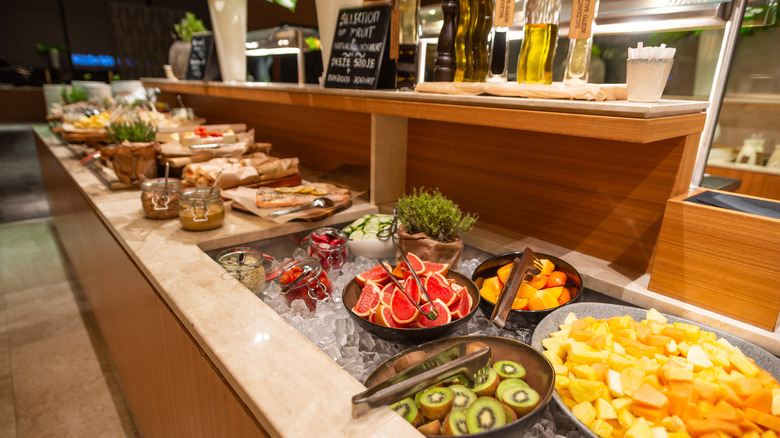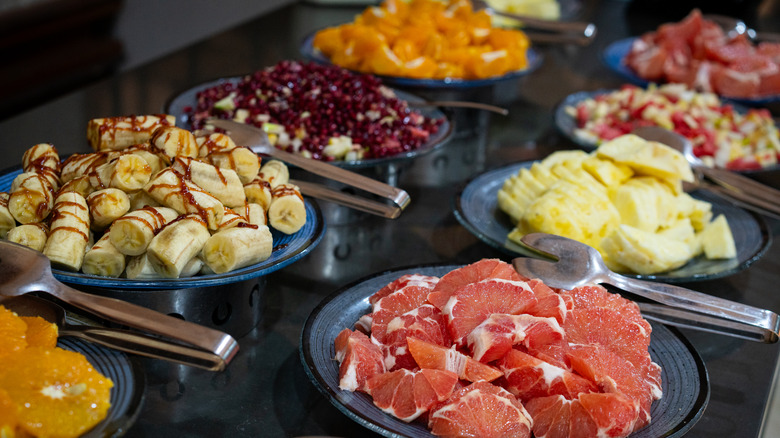The Breakfast Buffet Red Flag You Should Never Ignore
The United States is home to many wonderful buffets, most of which are found at hotels. Many of these are complementary continental breakfast buffets, featuring light options like toast, yogurt, and fruit. Although waking up and running downstairs to the buffet to pile up food onto a breakfast plate is quite fun, there is a bit of a dark side to this seemingly harmless venture.
At the breakfast buffet, there is one food that diners should be cautious about: fruit. Produce that is not properly cleaned, handled, or stored can quickly lead to food poisoning. Dirt and bacteria might be present on old or unclean fruit, so freshness and cleanliness is of the utmost importance. Some fruits should be kept at cold temperatures to prevent bacteria growth, so if a bowl of cut fruit is sitting out in warm conditions, be wary.
This is not to say that all fruits and vegetables must be avoided at all costs at breakfast buffets. Produce that has been properly handled and stored is perfectly fine to eat and can make for a healthy start to the day. When in doubt, if the fruit or vegetables look suspicious, opt for something else instead, though it's worth reading up on the best and worst offerings on any breakfast buffet before you dig in.
The fuss about fruit on breakfast buffets
A great way to spot if produce should be avoided at the breakfast buffet is simply by looking. It sounds clichéd, but the appearance of the produce will be a decent giveaway as to its condition. Avoid produce that has dirt or any marks on it. If the food looks dirty or discolored it could be harboring harmful bacteria. And if it seems soft or mushy to the touch, it is best to steer clear as it's probably past its best. It could be yesterday's precut fruit set out again today.
Certain fruits are grown and harvested close to or directly from the ground, like strawberries. It is important to check these in particular for dirt, as well as any visual signs of potential issues such as bruising. Not only can dirt easily get onto ground-grown produce, but the dirt can also serve as a breeding ground for microorganisms.
Last but not least, out of all the fruits, melons perhaps have the greatest potential for issues to look out for. Oftentimes, melons are not properly washed, particularly the rinds. Any bacteria residing in the rinds can spread to the flesh of the fruit itself and be eaten later by an unsuspecting breakfast guest.

